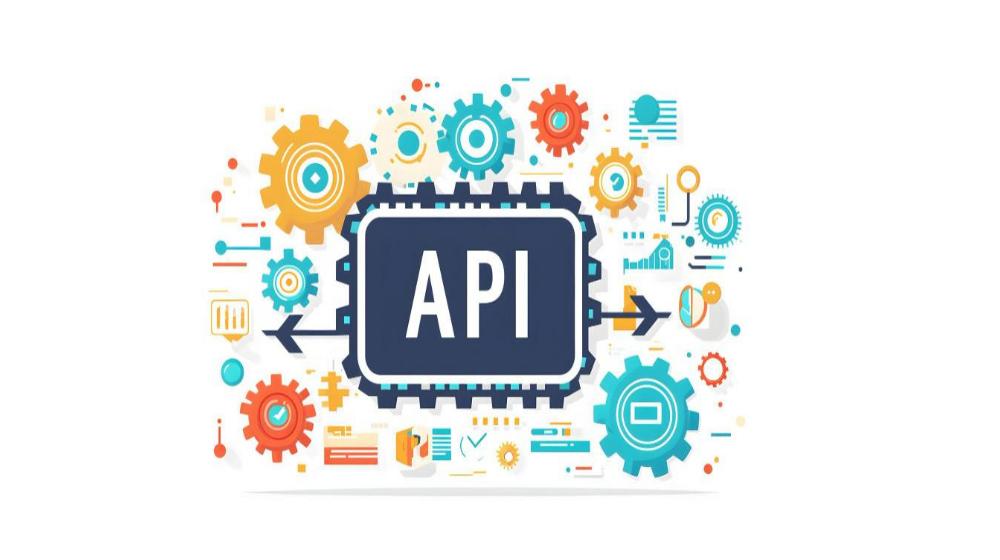
What is an API integration?
Author
VAMENTURE
Published On
December 30, 2024
Category
Technology
API integration plays a major role in today's digital world, where businesses are supposed to share data for improved services. In 2025, APIs will be all about connecting applications and systems to make operations smoother across industries like finance and retail.
As API usage grows, companies are placing more emphasis on securing and managing such connections to ensure safe and efficient business growth. This article will explain API integration and why it is important for businesses.
What is an API integration?
API integration refers to making two or more software applications intercommunicate through APIs or Application Programming Interfaces. APIs act like a bridge, connecting different systems for communication and information sharing in a way that does not require manual input. This facilitates the automation of workflows, enhancement in efficiency, and extension of functionality.
For instance, API integrations have connected e-commerce websites with payment gateways for smooth transitions of transactions. In industries such as healthcare, finance, and logistics, API integrations are in great use in the year 2024 to upgrade user experiences, reduce operational costs, and ensure faster data processing. As technology continues to evolve, API integration is one such method that helps streamline operations and connect businesses with modern tools and services.
How API Integration Works?

API integration allows various applications to communicate and share data with each other, hence allowing seamless workflows. Here's how this works:
Reading API Documentation: First, the developers go through the API documentation, which contains information on endpoints, data formats, authentication, and types of errors that can occur.
Establishing Communication: Using supported programming languages, developers write code to send requests to the API endpoints. For example, a request might ask for customer data or update inventory.
Processing Responses: The API sends a response (usually in JSON or XML), which the application processes to perform the desired action, like displaying user profiles or syncing data.
Testing and Debugging: Developers test the integration to ensure the connection works reliably and handles edge cases like incorrect data or network failures.
Deployment and Monitoring: Once the integration is live, monitoring tools ensure everything runs smoothly and updates are applied as APIs evolve.
This process is critical for automating tasks and building dynamic app ecosystems, like integrating a payment gateway into an e-commerce platform or syncing marketing tools with a CRM.
Benefits of API Integration
API integration connects various software systems, making data exchange, process automation, and feature enhancement more efficient. This leads to streamlined operations, better productivity, and an overall improved business performance.
Streamlined Operations: APIs reduce manual efforts by automating repetitive tasks and ensuring smooth communication between systems. This saves time and cuts down on human errors, improving efficiency.
Enhanced Business Intelligence: APIs gather data from different platforms, offering businesses valuable insights for decision-making. This helps in improving operations by making data easily accessible and actionable.
Personalized Customer Experiences: Real-time data flow because of API integrations can enable businesses to create personalized and updated experiences for customers-both online and in-store.
Cost Savings: With APIs automating workflows, there will be no need to develop additional resources, which drives down operational costs and increases the ROI.
Faster Innovation: With APIs, businesses can quickly build new functionalities without having to tear down existing systems, thus accelerating innovation processes and keeping companies competitive.
Improved Collaboration: APIs allow different departments and systems to share data more effectively which improve collaboration speeds up decision-making processes.
API integration is an essential tool for businesses scaling up for improved productivity and relevance in the competitive marketplace.
Why Do Businesses Integrate and Use APIs?
Businesses implement and utilize APIs in their operation to enhance process efficiencies, teamwork, and innovation. An API offers many key benefits, such as helping an organization improve its processes and services.
Efficiency and Automation: Through APIs, many tasks are automated, and systems can share data without manual interference. This decreases errors and quickens the processes, hence saving time and increasing productivity.
Scalability:APIs offer businesses the flexibility to scale up their operations quickly. Whether adding new services or integrating third-party tools, APIs provide easier adaptability and expansion without interfering with established processes.
Better Customer Insights: APIs allow business integration to get access to data in real time. This gives a more realistic approach to customer insight, which would result in better customer experience and smarter decision-making.
Innovation and Flexibility: APIs let businesses integrate the latest technologies and services in no time, enabling them to stay ahead. They can rapidly introduce new features-for example, paying systems or analytics tools-without having to develop everything from scratch.
Cost Savings: Using APIs helps businesses save on development costs. Rather than creating new systems or infrastructure, companies can integrate third-party solutions that meet their needs, significantly lowering expenses.
Enhanced Collaboration: APIs let different systems of the organization communicate effectively. This allows better collaboration between departments and external partners, improving overall business coordination.
In simple words, APIs are integral to modern business strategies, enabling companies to stay agile, cost-effective, and competitive in a fast-moving digital world.
Types of API Integrations

APIs come in various types, each serving different integration purposes. Whether it's a public API connecting with external services, a private API for secure internal use, or a composite API combining multiple services, each type enhances software interoperability and simplifies business processes. Here's an overview of the main API types.
Open APIs (Public APIs): These APIs are available to everyone. Anyone can use them to access certain services or data. They help integrate different apps with minimal restrictions.
Internal APIs (Private APIs): These APIs are only for internal use within a company. They allow different teams or systems in the company to share data and communicate more easily.
Partner APIs: These are shared between specific partners. They allow businesses to integrate and exchange data securely, like when an online store uses an external payment gateway.
Composite APIs: These APIs let you access multiple endpoints or services in one request. For example, they can gather data from different sources at once, making processes faster and simpler.
REST APIs (Representational State Transfer): REST is a lightweight architecture that allows easy communication between systems. It’s commonly used for web services because of its simplicity and flexibility.
SOAP APIs (Simple Object Access Protocol): SOAP APIs use a protocol that’s more rigid than REST. It’s highly secure and reliable, often used for tasks requiring a higher level of security or formalized transactions.
Each type of API serves a different purpose but ultimately helps make data sharing and integrations simpler across various platforms
Industries Using API Integrations
API integrations have been widely used in several industries to smoothen workflows, increase data sharing, and provide a better customer experience. A look at some of the key sectors where APIs are playing an important role is presented below.
E-commerce: Online retailers use APIs to integrate themselves with payment gateways, inventory management systems, and shipping services. This will automate the transaction, quicken order processing, and generally make the shopping experience for the customers far more enjoyable.
Healthcare: APIs in healthcare systems facilitate secure sharing of patient data across platforms. Hospitals, clinics, and pharmacies share medical records, prescriptions, and treatment plans using APIs to enable better coordination of care.
Finance: In financial areas, APIs share real-time data such as payment gateways, fraud detection, and loan approvals. The usage of APIs in banks and fintech firms enables new financial products to integrate and thus provide more value-added customer services.
Travel and Hospitality: Airlines, hotels, and travel agencies use APIs to access booking systems, real-time flight information, and weather forecasts. These integrations facilitate smooth processes in the booking experience and enhance customer experience.
Social Media: Various social media platforms such as Facebook, Twitter, and Instagram have APIs that allow third-party applications to implement features around social sharing, user authentication, data collection, among others, further enhancing functionality.
Entertainment and Streaming: Streaming services like Netflix and Spotify use APIs to allow access to their libraries, make personalized content recommendations, and integrate with other services like payment gateways and smart devices.
APIs are transforming industries by raising efficiency and creating better experiences for customers.
Conclusion
API integrations empower businesses with a strong tool to run smooth operations, improve efficiency, and build great user experiences. Connecting the systems can help organizations automate processes and get access to much-valued data in real-time. Moving ahead, leveraging API integrations will continue to be the way to competitiveness and driving innovation in evolving industries.